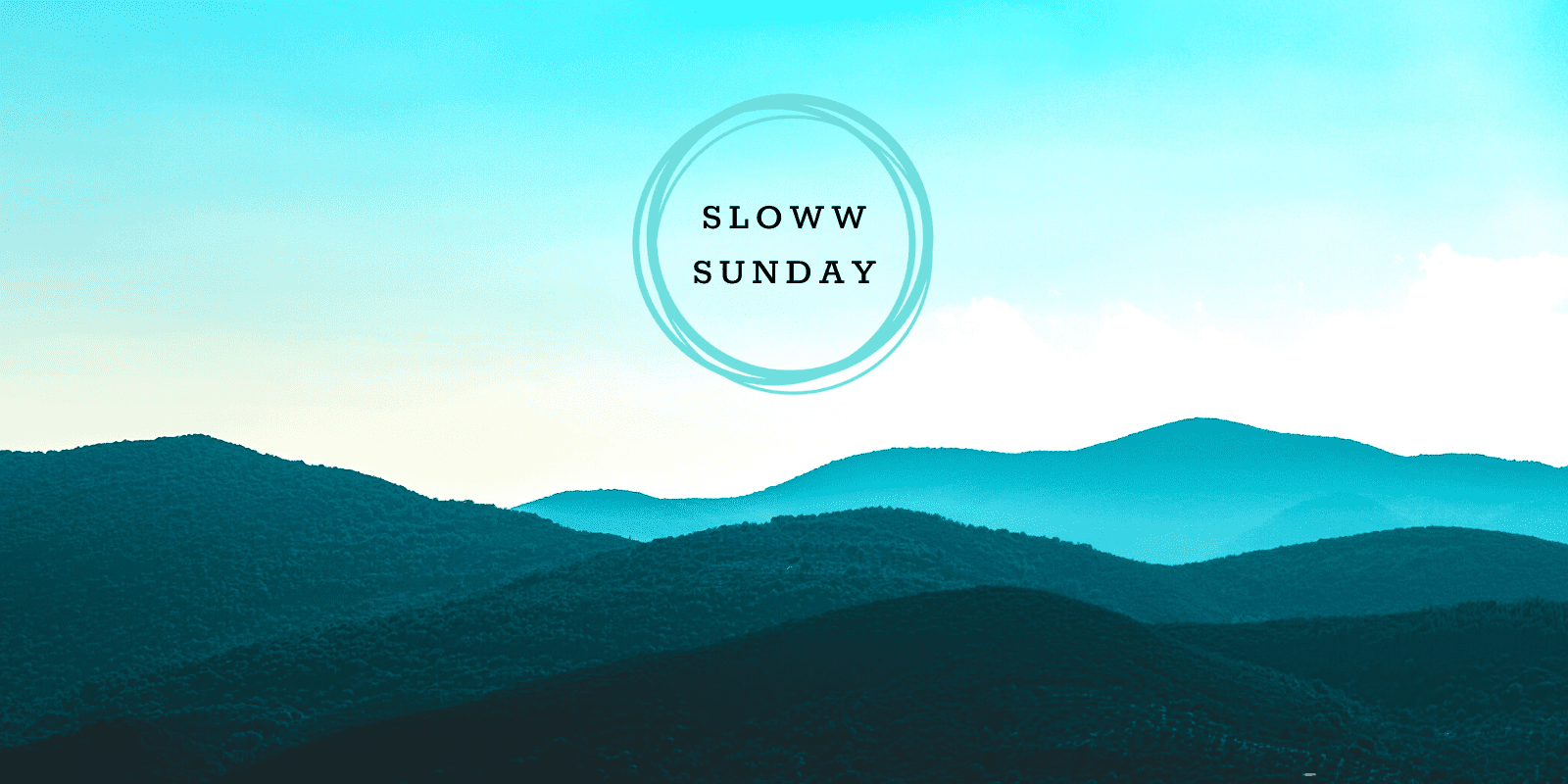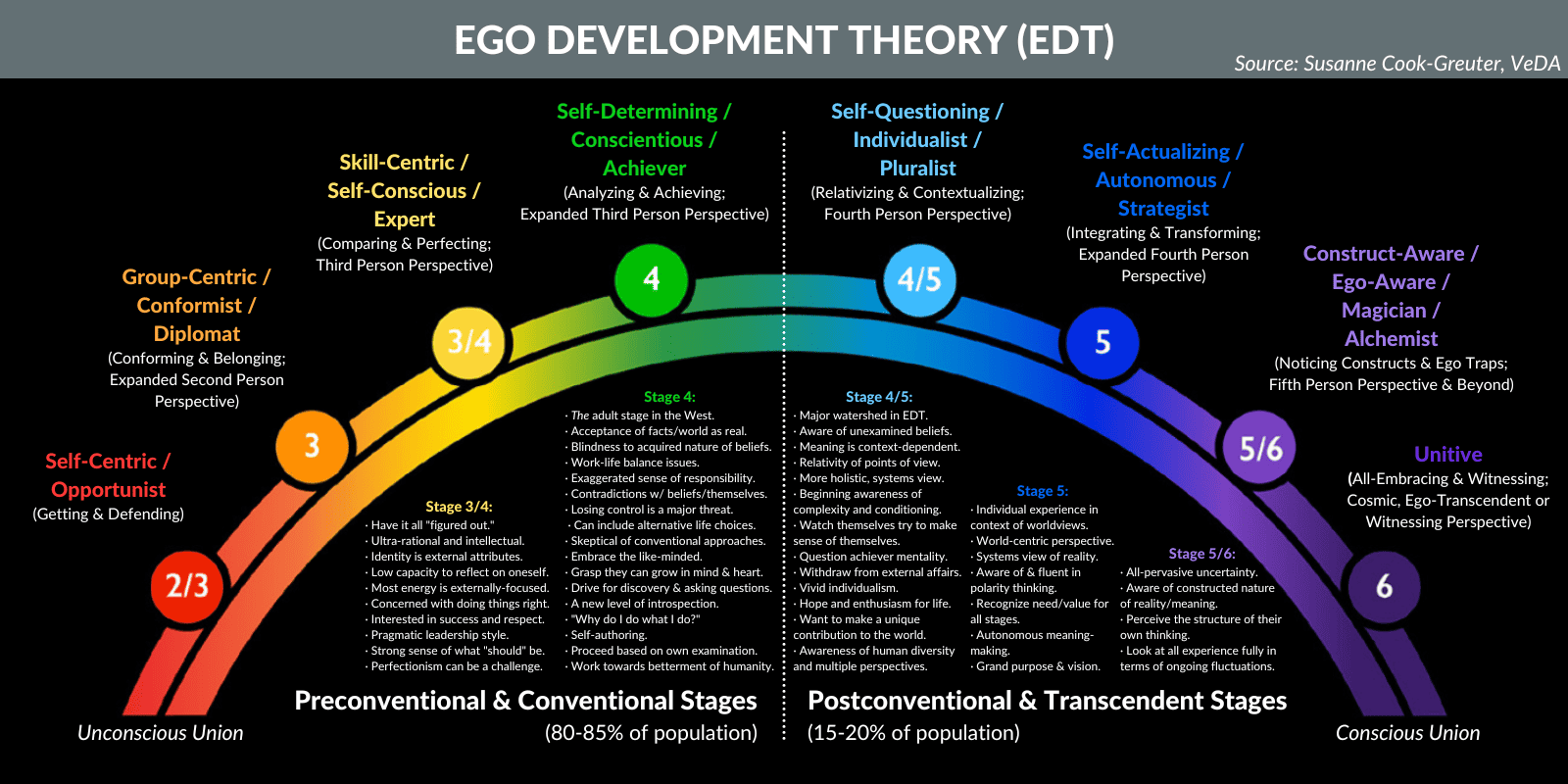Sign up to get the Sloww Sunday newsletter via email for free:👇

Sloww Sunday Newsletter 184 (Apr 21, 2024) — Life of Mind, Taboo of Taboos, Mastery of Money, & More
Sloww Sunday shares my latest and greatest creations and curations to 10,000+ students of life. If you enjoy this issue, please help grow Sloww by forwarding this newsletter to other lifelong learners.
📚 Lifelong Learning & Deeper Development
Do you live a life of the mind?
I feel lucky to live a life of the mind. If you do too, what words do you use to articulate this and/or describe yourself? Here are a bunch I’ve seen, but please reply with any others you personally use:
- Synthesizer / Synthesist / Generalist / Interdisciplinarian / Comprehensivist
- Autodidact / Autonomous Learner / Lifelong Learner / Self-Learner / Student of Life
- Philomath / Polymath / Philosopher / Multipotentialite
- Knowledge Integrator / Knowledge Networker
- Cognitive Explorer / Inner Space Explorer / Inner World Explorer
- Sensemaker / Systems Thinker / Systemic Thinker
- Intellectual / Public Intellectual / Independent Scholar / Citizen Thinker
- Curiosity Sherpa / Combinatorial Creator / Connection Cartographer
- Infopreneur / Infonaut / Innerpreneur / Innernaut / Edupreneur
Explore more: 50+ posts on Lifelong Learning & Deeper Development (Sloww Stage Support)
🌎 Lighter Living
It doesn’t pay to be obsessed with money…
I recently came across this quote attributed to Rudyard Kipling:
- “Beware of overconcern for money, or position, or glory. Someday you will meet a man who cares for none of these things. Then you will know how poor you are.”
As I do with most quotes, I try to find the original source to double check attribution, see if it’s worded correctly, etc. It led me to a Rudyard Kipling speech delivered to the students of McGill University over 100 years ago. While I couldn’t find the original quote, there were some equally noteworthy highlights:
- “When, to use a detestable phrase, you go out into ‘the battle of life’, you will be confronted by an organised conspiracy which will try to make you believe that the world is governed by the idea of wealth for wealth’s sake … You will live and eat and move and have your being in a world dominated by that thought. Some of you will probably succumb to the poison of it.”
- “Watch your fellows for a while. Sooner or later, you will see some man to whom the idea of wealth as mere wealth does not appeal, whom the methods of amassing that wealth do not interest, and who will not accept money if you offer it to him at a certain price. At first you will be inclined to laugh at this man and to think that he is not ‘smart’ in his ideas. I suggest that you watch him closely, for he will presently demonstrate to you that money dominates everybody except the man who does not want money.”
- “I would like you to study that man. I would like you better to be that man, because from the lower point of view it doesn’t pay to be obsessed by the desire of wealth for wealth’s sake. If more wealth be necessary to you, for purposes not your own, use your left hand to acquire it, but keep your right for your proper work in life. If you employ both arms in that game you will be in danger of stooping; in danger, also, of losing your soul. But in spite of everything you may succeed, you may be successful, you may acquire enormous wealth. In which case I warn you that you stand in grave danger of being spoken and written of and pointed out as ‘a smart man.'”
🔒 Premium member deep dive:
- Behind the Scenes: My Evolving Relationship toward the “Money Middle Way”
- Naval Ravikant Synthesis: How to Build Wealth by Being Yourself (+ Infographics)
- “Early Retirement Extreme” Synthesis: How to Build a Lifestyle Design Strategy & System (+ Visuals)
Explore more: 100+ posts on Intentional Living (Sloww Stage 1)
🧭 Higher Purpose
The Western Taboo of Taboos is Knowing Who You Are
Every other taboo is a byproduct of that root taboo. It’s a crime that Western humans aren’t figuring out who they are until their 30s, 40s, 50s, 60s—or later … or never.
Alan Watts nailed it 50+ years ago with his book appropriately titled The Book: On the Taboo Against Knowing Who You Are (Book Summary | 🔒Premium Synthesis):
- “This book explores an unrecognized but mighty taboo—our tacit conspiracy to ignore who, or what, we really are. Briefly, the thesis is that the prevalent sensation of oneself as a separate ego enclosed in a bag of skin is a hallucination which accords neither with Western science nor with the experimental philosophy-religions of the East.”
- “The most strongly enforced of all known taboos is the taboo against knowing who or what you really are behind the mask of your apparently separate, independent, and isolated ego … We need a new experience—a new feeling of what it is to be ‘I.’ The lowdown (which is, of course, the secret and profound view) on life is that our normal sensation of self is a hoax, or, at best, a temporary role that we are playing, or have been conned into playing.”
- “The Ultimate Ground of Being is you. Not, of course, the everyday you which the Ground is assuming, or ‘pretending’ to be, but that inmost Self which escapes inspection because it’s always the inspector. This, then, is the taboo of taboos: you’re IT! … This inner revolution of the mind has been confined to rather isolated individuals; it has never, to my knowledge, been widely characteristic of communities or societies. It has often been thought too dangerous for that. Hence the taboo.”
🔒 Premium member deep dive:
- Alan Watts Synthesis: How to Answer the Ultimate Question of “Who am I?”
- Stream of Consciousness: Is the Meta-Crisis a Me-Crisis?
Explore more: 50+ posts on Life Purpose (Sloww Stage 2)
🧠 Mental Mastery
Hypothesis about Ego Development & Free Will
Last week’s newsletter covered ego development theory and the developing sense of separation and integration. Staying on the subject of EDT, here’s my own hypothesis about the developing sense of self and free will (pair with the stages image below for reference):
- Up until around EDT Stage 5: “I have free will” (appearance of free will—in spiritual terms, this is asleep): Most Western humans still think they are their mind/self—as a byproduct, free will is unquestioned, a given, and taken for granted. They live in the relative world of duality thinking they are their minds and separate selves who have free will and ultimate responsibility along with everyone else.
- EDT Stage 5/6: “I don’t have free will” (seeing no free will—this is awakening): Some Western humans realize they are not their mind/self because they are aware of their mind/self—as a byproduct, free will is called into question. This is the realization that “you” are not the mind/self that you thought you were for your entire life up to this point because you are now able to observe/witness this mind/self.
- EDT Stage 6: “I am free” (freedom beyond will—this is enlightenment): Few Western humans have transcended the mind/self where subject and object merge in nondual awareness which dissolves duality including the sense of separate self—as a byproduct, free will is no longer a relevant question. This is the realization that there’s no separate self to have free will in the first place.

🔒 Premium member deep dive:
- Stream of Consciousness: Are there Stages of Seeing Free Will?
- Stream of Consciousness: What is the Subject-Object Relationship?
- Behind the Scenes: How I Live with the Lottery of Birth & Lack of Free Will (1 Year Later)
Explore more: 75+ posts on Mental Mastery (Sloww Stage 3)
☯️ Spiritual Seeing
Awakening with Adyashanti
A recent Wise Walk week was spent immersed in Adyashanti’s teachings. Here are some of my favorite takeaways:
Pre-Awakening: Separate self is a natural stage of development:
- “The experience of separation, although it’s illusory, seems to be a natural stage in the development of consciousness—just like adolescence is a natural stage of development. You don’t look back and go, ‘Why was I ever an infant? That was silly, I should have just skipped over that stage.’ I even see this sort of ‘ego development‘ and with it comes a sense of separation … It all starts to create the sense of self. I see that sense of separate self as ultimately illusory but actually quite natural stage of development … The psychological self isn’t who we are … That’s the good news—that who we are is already transcendent of the psychological self.”
Awakening: A shift in identity:
- “Awakening is a fundamental shift in the way we perceive and feel about ourself—what and who we take ourselves to be … To qualify as a spiritual awakening, it has to involve some some type of revelation which has the effect of shifting your identity—your your sense of what you are—from a sort of mind-based or ego-based identification to an identity that’s more based in our fundamental nature … To have a shift in our identity is so important because it shifts everything … When your identity shifts, you realize everything shifts along with it—your entire worldview shifts, your thought and view on everything shifts.”
Post-Awakening: A byproduct of a shift in willing:
- “When you actually see it, it can really be quite terrifying, quite shocking: ‘My god, the person I thought I was isn’t here’ … My very idea that I am the director of my own life—I have control over it, and it’s going to go where I want—you wake up and realize that is not going to work for you anymore … The will is one of the primary things that starts to disappear—the experience of will, of wanting to make this happen. The will is what drives most of the experience of the psychological self, and part of what will happen with any deep realization is the will will start to be diminished because the self that it is based on, and flowing from, and giving life to, is seen through.”
Explore more: 75+ posts on Spiritual Seeing (Sloww Stage 4)
💬 Wise Words
“Live the full life of the mind, exhilarated by new ideas, intoxicated by the romance of the unusual.” — Ernest Hemingway
Share: Sloww Sunday currently sends to 10,000+ students of life each week. If you enjoyed this issue, please help grow Sloww by forwarding this newsletter to some friends and family. It’s free for them to subscribe here.
Support: Sloww is a one-human labor of love (it’s just me over here 👋). Your support keeps the site ad-free and invests in me while you invest in yourself—a true win-win! There are free and financial ways to support.
Speak: Have something you want to say, or just want to say hi? It’s always greatly appreciated. Just reply to this email or reach out socially.
All the best,
Kyle Kowalski
Founder, Sloww




